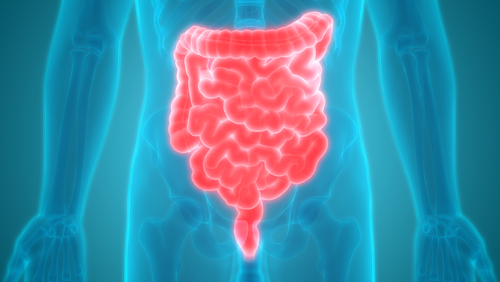MIT Scientists Building Artificial Gut to Study Bacteria’s Influence on Parkinson’s, Other Diseases

MIT Lincoln Laboratory researchers are developing an artificial gut to study how the human microbiome — the trillions of microorganisms and their genetic material that live within our body, and are as unique to a person as fingerprints — influences the onset and progression of diseases linked to changes in gut bacterial constitution, such as Parkinson’s disease.
The so-called “gut-brain axis” is a highly complex and interactive network between the gut and the brain, composed of endocrine (hormonal), immunological, and neural mediators. Dysregulation of “cross-talk” within this axis has been associated with metabolic syndrome, depression, anxiety and autism, as well as to neurodegenerative diseases like Parkinson’s, and Alzheimer’s.
By manipulating the gut microbiome in Parkinson’s patients, researchers could study its effects on neurodegenerative processes.
“Until now, no one has been able to culture a microbiome sample and maintain it,” David Walsh, a PhD with the Biological and Chemical Technologies Group at MIT who led the prototype device’s development and fabrication, said in a university news story by Anne McGovern. Further refinements are still being made.
“The question from the mechanical side is, how do you emulate the colon?” said Todd Thorsen, PhD, the project’s principal investigator and an assistant professor with the MIT group.
“Bacteria in the colon occupy lots of ecological niches,” Thorsen added. This means that all bacteria living in the colon have organism-specific demands for survival, including nutritional and environmental requirements. For instance, some are oxygen-dependent and others not.
To mimic the intestinal microenvironment, Lincoln Laboratory investigators are developing an easily accessible and cost-effective platform made of permeable silicon rubber and other plastics, like polystyrene. Importantly, in this “artificial gut,” scientists can regulate oxygen and mucus concentrations within microculture chambers, modeling the human colon. Because it can be easily replicated, it might also be of use to others studying the gut microbiome, and the impact of disease or treatment on it.
“If we can maintain a culture, we can do things like add toxins and therapeutics to see how they change the culture over time,” Walsh said. Such an ability could move research a step closer to tackling real-world problems, including bacterial resistance.
Using gut microbiome samples from Parkinson’s patients and healthy people, the scientists plan to use their device to study intestinal bacteria’s influence on the neurodegenerative processes seen in Parkinson’s.
Experiments are expected to begin soon, in collaboration with researchers at the University of Alabama at Birmingham, Northeastern University, and the University of California at San Francisco.
The team also plans to build a tube-shaped origami-like gut that rolls up during assembly to simulate the colon and the surrounding vascularized tissue, and to develop modeling software to predict how different bacterial communities change over time.






